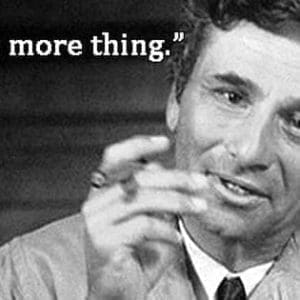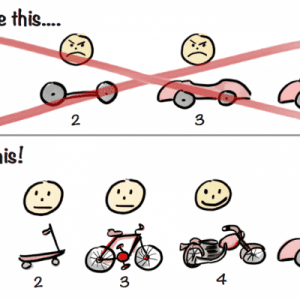“That could be fixed in the system”, I said to the weary auditor, “with a one-sided journal entry”.
Her brow furrowed slightly. “A what?”
“A one-sided journal entry. You know, add a debit amount to one account without crediting another.”

Her frown deepened. “I don’t understand”.
“Well”, I said, “this system normally doesn’t allow a one-sided journal entry – or at least I don’t know how to do it. But it should be possible, I’ve seen it in other systems.”
She shook her head. “No, that can’t be”. The idea was so foreign to her, it was visibly rattling her internal cage.
“No, really. In fact, I was the one who added the One Sided Journal Entry function in the accounting system I helped write at my first job. A couple of our customers asked for it.”
That last point really made her stare – at a complete loss for words.
“No, really; it was a property management system, and many of our customers managed buildings for a group of unrelated owners. The management company set up complex entity structures for the various owners, with automatic intercompany transfers for services performed. At times, they wanted to make corrections in the books of one entity – say, adjustments from the property owner from their own bookkeeping systems – dealing with portions of this intercompany stuff. Since the offsetting entry needed to be made in a separate system – voila; I require a one-sided journal entry.”
Slowly, maybe a glimmer of understanding – but then she shook her head. I’m describing 25-year old system, and she didn’t understand that the property owners probably did their books on paper. All correct, above board, legal; an adaptation required of new systems in this dawning age of accessible computing, making allowances so they can interface with Real World accounting.
Lessons from the Past
True story – I did have this conversation, and I did write the one-sided journal entry program (GL0091, in RPG on the System/36, if my memory serves me). For a recent grad with an engineering degree, it didn’t occur to me that I was violating Closely Held Beliefs of the accounting community; I took a few classes, I knew what T-accounts were – it was just a clever bookkeeping hack (but fundamentally simple to code, of course).
In retrospect, I learned a few things …
- There are no absolutes: don’t assume everything is constant / consistent
- The voice of the customer is a powerful thing
- You literally can do anything you want on a computer
- (and, for my friend the auditor) Try not to be too amazed when someone questions your firmly held beliefs – anything is possible






This Post Has 0 Comments